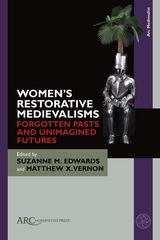6 start with W start with W
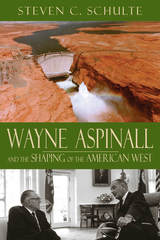
In Wayne Aspinall and the Shaping of the American West, Steven C. Schulte details a political career that encompassed some of the most crucial years in the development of the twentieth-century West. As chairman of the House Interior and Insular Affairs Committee from 1959 to 1973, Aspinall shaped the nation's reclamation, land, wilderness, and natural resource policies. His crusty and dtermined personality was at the enter of some of the key environmental battles of the twentieth century, including the Echo Park Dam fight, the struggle for the Wilderness Act, and the long controversy over the Central Arizona Project.
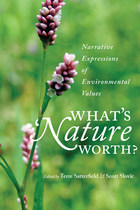
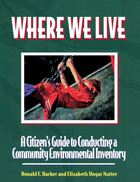
Where We Live is a practical workbook to help citizens find information concerning their local environment and to use that information in furthering environmental goals. The book includes general information on human impacts on the environment and instructions for citizens to use in creating a community environmental map. In addition, it guides the user through various environmental programs and available documentation of community environmental hazards.
Included are addresses and phone numbers for state environmental and natural resource agencies in all fifty states, and a listing of chemicals and their effects on humans and the environment. The final section of the book presents a series of exercises to help groups explore methods of approaching various community issues.
Where We Live is a valuable resource for community development practitioners, local government officials and citizen activists concerned with the impact of environmental decisions on local communities, as well as teachers at both the college and secondary-school levels."
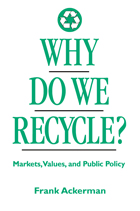
The earnest warnings of an impending "solid waste crisis" that permeated the 1980s provided the impetus for the widespread adoption of municipal recycling programs. Since that time America has witnessed a remarkable rise in public participation in recycling activities, including curbside collection, drop-off centers, and commercial and office programs. Recently, however, a backlash against these programs has developed. A vocal group of "anti-recyclers" has appeared, arguing that recycling is not an economically efficient strategy for addressing waste management problems.
In Why Do We Recycle? Frank Ackerman examines the arguments for and against recycling, focusing on the debate surrounding the use of economic mechanisms to determine the value of recycling. Based on previously unpublished research conducted by the Tellus Institute, a nonprofit environmental research group in Boston, Massachusetts, Ackerman presents an alternative view of the theory of market incentives, challenging the notion that setting appropriate prices and allowing unfettered competition will result in the most efficient level of recycling. Among the topics he considers are:
- externality issues -- unit pricing for waste disposal, effluent taxes, virgin materials subsidies, advance disposal fees
- the landfill crisis and disposal facility siting
- container deposit ("bottle bill") legislation
- environmental issues that fall outside of market theory
- calculating costs and benefits of municipal recycling programs
- life-cycle analysis and packaging policy -- Germany's "Green Dot" packaging system and producer responsibility
- the impacts of production in extractive and manufacturing industries
- composting and organic waste management
- economics of conservation, and material use and long-term sustainability
Backed by empirical data and replete with specific examples, the book offers valuable guidance for municipal planners, environmental managers, and policymakers responsible for establishing and implementing recycling programs. It is also an accessible introduction to the subject for faculty, students, and concerned citizens interested in the social, economic, and ethical underpinnings of recycling efforts.
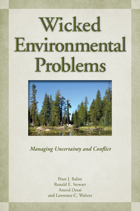
This new book examines past experience and future directions in the management of wicked environmental problems and describes new strategies for mitigating the conflicts inherent in these seemingly intractable situations. The book:
- reviews the history of the concept of wicked problems
- examines the principles and processes that managers have applied
- explores the practical limitations of various approaches
Case studies of forest management in the Sierra Nevada, restoration of the Florida Everglades, carbon trading in the European Union, and management of the Ngorongoro Conservation Area in Tanzania are used to explain concepts and demonstrate practical applications.
Wicked Environmental Problems offers new approaches for managing environmental conflicts and shows how managers could apply these approaches within common, real-world statutory decision-making frameworks. It is essential reading for anyone concerned with managing environmental problems.
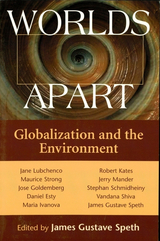
Worlds Apart presents a cohesive set of essays by leading thinkers on the subject of globalization, offering a thoughtful overview of the major environmental issues related to globalization in a clear, reasoned style. Framed by Gus Speth’s introduction and conclusion, essays range from Jane Lubchenco’s discussion of the scientific indicators of global environmental change to Robert Kates’ examination of the prospect that our growing global interconnectedness could lead a transition to a more sustainable world to Vandana Shiva’s impassioned plea for a new “living democracy” that counters the degrading, dehumanizing tendencies of the global economy. Other contributors include Maurice Strong on the Rio Earth Summit and the future course of environmentalism, José Goldemberg on energy, Jerry Mander on the inherent destructiveness of the global economic system, Stephan Schmidheiny on the forestry industry, and Daniel Esty and Maria Ivanova on global environmental governance.
Edited by one of the world’s leading experts on international environmental issues, the book brings together the most respected thinkers and actors on the world stage to offer a compelling set of perspectives and a solid introduction to the social and environmental dimensions of globalization.
READERS
Browse our collection.
PUBLISHERS
See BiblioVault's publisher services.
STUDENT SERVICES
Files for college accessibility offices.
UChicago Accessibility Resources
home | accessibility | search | about | contact us
BiblioVault ® 2001 - 2024
The University of Chicago Press





